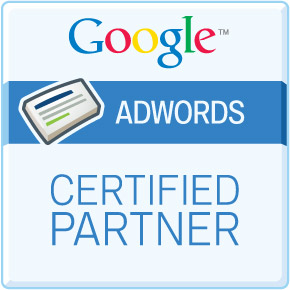6 Reasons Why You Should Be E-mail Marketing
“E-mail marketing is among the very few marketing activities, like social media, that allows for a high level of tolerable frequency. And frequently is the only way to tap into someone’s top-of-mind awareness. “
AUTHOR’S NOTE: I find myself spending quite some time educating businesses about e-mail marketing and how it can efficiently satisfy even the most common marketing objectives. Hopefully, the main reasons I normally point out will help convince you too!
There are a number of reasons why you should consider doing e-mail marketing (if you aren’t already). But first, let’s get a few things out of the way. If you haven’t considered e-mail marketing yet, you are either unaware of what it can do for your business, or you are against doing it altogether. Or both. This article will speak mainly to the first point. But we should begin by clearing the air about the second one. Here goes… E-mail marketing:
- Is very inexpensive
- Is relatively easy to do
- Isn’t time consuming at all
- Isn’t spamming
- Isn’t a waste of effort (people actually read e-mails)
- Is proven to generate sales
Don’t agree with the above list? Then you, along with many others, have false assumptions about e-mail marketing. It’s very important to note that the last 3 points depend on how targeted both your distribution list and content is. But that isn’t rocket science either. On to the main topic now. E-mail marketing is a great marketing tool for many different types of businesses. Restaurants, consultants, clothing stores, universities and celebrities have all used it as a part of their marketing mix. The fact is that e-mail marketing is being used in every industry because it helps to satisfy the same old marketing objectives that can be found in any marketing plan, really. And these are the 6 reasons why you should be doing e-mail marketing yourself:
6 REASONS
WHY YOU SHOULD BE E-MAIL MARKETING1. Generate/increase customer loyalty:
As a business, you might want to collect your customers’ e-mails to generate loyalty. If you’ve ever registered for a rewards program at Chapters or Starbucks, for example, you will have had to fork over your e-mail, which is a way of telling a company that you’re (at least somewhat) loyal to them.
Some companies use e-mail marketing as a means to offer exclusive discounts to loyal customers. “You can only get our promotions if you sign up and become a member”, they’ll say. And now that you’re receiving exclusive, member-only prices, you’re far more likely to perceive whatever it is that they are selling to be of higher value (being at a discounted price). This drives additional sales and makes loyal customers all the more loyal.
So, exclusive discounts increase loyalty, which is an effective way of eliminating our natural tendency to shop around. Think about it… If you get an e-mail from David’s Tea offering you 30% off green tea, how likely are you say “I wonder how much green tea is going for at Teavana?”
Keep in mind, however, loyalty programs aren’t the only way to generate/increase loyalty with e-mail marketing. Sending a newsletter from time-to-time can achieve the same effect, although it has less of a short-term focus.
2. Generate/increase sales:
This is similar to the first point. Of course, customer loyalty both generates and increases sales. But e-mail marketing, on a strategic level, helps solidify customer loyalty. At the campaign level, different types of e-mails can be solely designed to generate or increase sales.
Let’s say you buy a printer on Amazon. You are likely to receive a follow-up e-mail displaying items that are related to this recent purchase, like ink toner and paper. This one e-mail is designed to cross-sell you (increase sales), whereas all of Amazon’s e-mail marketing efforts are trying to increase your loyalty. Both go hand-in-hand.
3. Inform/remind customers:
Sometimes, the nature of an e-mail campaign can be as simple as to inform customers and or remind them about something your business has going on. For example, webhosting companies will periodically have .com domain name sales. They will first send out a promotion to inform you of the limited-time sale. A few days later, you’ll get a follow up e-mail to remind you that the reduced prices are only available until midnight!
Yes, e-mail marketing is a great tool for companies that offer promotions. But you can inform and remind customers of much more than just sales. It can be used for events, charity, company policy changes, new product/service additions, or even to subtly say, “hey there, I just wanted to remind you that we exist”, as is often the case with newsletters-style e-mails.
4. Increase top-of-mind awareness:
E-mail marketing is among the very few marketing activities, like social media, that allows for a high level of tolerable frequency. And frequently is the only way to tap into someone’s top-of-mind awareness. Some companies get away with sending out e-mails every few days or so, without it feeling like spam. Just imagine if a company were to send you a letter in the mail every 2 days. That would feel pretty darn pervasive and inappropriate, right? Well, not necessarily with e-mail marketing.
When you are able to reach the same people repeatedly, you will inevitably become one of the first brands that come to mind of when they think of your product/service category. This is called top-of-mind awareness. A business always wants to be top-of-mind. Why? It’s simple to explain. Name me the first chocolate bar that comes to mind. GO.
"E-mail marketing [...] allows for a high level of tolerable frequency. And frequently is the only way to tap into someone’s top-of-mind awareness.."
Did you think of Kit-Kat? Mars? Aero? Snickers? Caramilk? Those are the usual suspects. And with good reason too: they advertise a lot. But was “Crispy Crunch” among the first few you thought of? It’s unlikely. You are also highly unlikely to buy one because it didn’t make the list of those you could recall (and because it’s not all that good ;). This can help to explain why Crispy Crunch isn’t even close to being among the leading chocolate bar brands.
You can test this idea out yourself. Next time your friends have a chocolate bar craving, see if they buy a bar that they recall – that is top-of-mind. The odds are strong that they will. This is the power of top-of-mind awareness and it is an objective that e-mail marketing can help to achieve.
5. Establish/maintain a favourable brand perception:
E-mail marketing can easily help to establish and maintain favourable brand perceptions. When companies use punny subject lines, or emotionally charged visuals, they are trying to achieve just that.
A favourable brand perception means that people view you in a favourable light. Perhaps, you want to appear more credible, or reputable. You can always include a trusted accreditation in the e-mail. For example, some Internet marketers will boast that they’ve received an AdWords certification from Google itself by displaying this trustworthy icon:

(Let’s hope they actually followed the course and passed the exam.)
However, a favourable brand perception goes far beyond credibility and reputation. Maybe you want your customers to think of you as friendly, creative, helpful, innovative, or philanthropic. All of this (and much more) can be achieved very efficiently and effectively, given how easy it is to repeat and reinforce these messages with the frequency that e-mail marketing allows for.
6. Obtain market research data:
I’m sure we’ve all been sent a request to do an online survey via e-mail. E-mail marketing is one of the most cost-effective ways to administer market research. It’s also very easy and affordable to create online surveys. Win-win.
Marketers debate how effective e-mail marketing is at obtaining high survey response rates as compared to other approaches. Some say it’s super effective, others disagree. But survey administration via e-mail certainly shouldn’t be overlooked on this basis alone. Especially, by smaller businesses that don’t have a lot of time or money to invest in market research.

Let’s go one step further. You are collecting valuable market research just by doing e-mail marketing. If you use any of the top 10 e-mail marketing service providers on PCmag’s list, they will automatically track and measure your e-mail campaign performance through analytics. This can provide you with valuable insights, like:
- How many people opened the e-mail? Was the subject of high or low relevance?
- How long they spent reading it? Were they engaged?
- How many conversions did you get? Did they click through any links? How many interested were truly interested?
- How many people didn’t receive it? AKA: Bounce rate
- How many unsubscribed?
And more, depending on whether you opt for a free or premium account. So, e-mail marketing can provide AND facilitate market research.
To recap
There are many reasons why you should consider e-mail marketing. But here are 6 main ones that should get your hamster wheel turning:
- Generate/increase loyalty
- Generate/increase sales
- Inform/remind customers
- Increase top-of-mind awareness
- Establish a favourable brand perception
- Obtain market research data
Why else should companies engage in e-mail marketing? Let us know in the comments below:

Meet the author.

Taro Abarbanel-Uemura
Marketing Strategist
Meet Fortified Marketing's founder and lead marketing consultant. Taro loves reading fascinating articles on various marketing-related subjects, just as much as he enjoys writing about them. When he isn’t savouring a latte while working on his newest blog post, he can be found at a coffee shop in Ottawa's Little Italy, or marathoning shows and documentaries on Netflix.
Be in the know
(without having to remember to be in the know).
Our latest blogs go well with espresso and a warm croissant! Get them sent conveniently to your inbox when they are hot off the press. Subscribe to get Smarketing.

Like this post? Then you'll enjoy these.
Important Marketing Activities for Companies in the Tourism Industry
As the search for information occurs almost exclusively within the digital space nowadays, companies that operate in the tourism industry should have a marketing strategy that is digitally focused. Here are a few ideas that should be considered: search engine optimization (SEO), website translation, engaging online content, quality & quantity of reviews, customer retention.
Great Pricing Tactics – Part 2
Anything that directly affects how much you earn is worthy of your time, careful consideration and testing […] there is no stronger determinant of revenue than price.
How to tell if you are doing social media correctly?
Everyone does social media differently. Some people break all the rules and find great success. For the vast majority of us, social success takes a little longer. We’ve got some tried and true suggestions on how you can determine whether your business is on the right path.



0 Comments